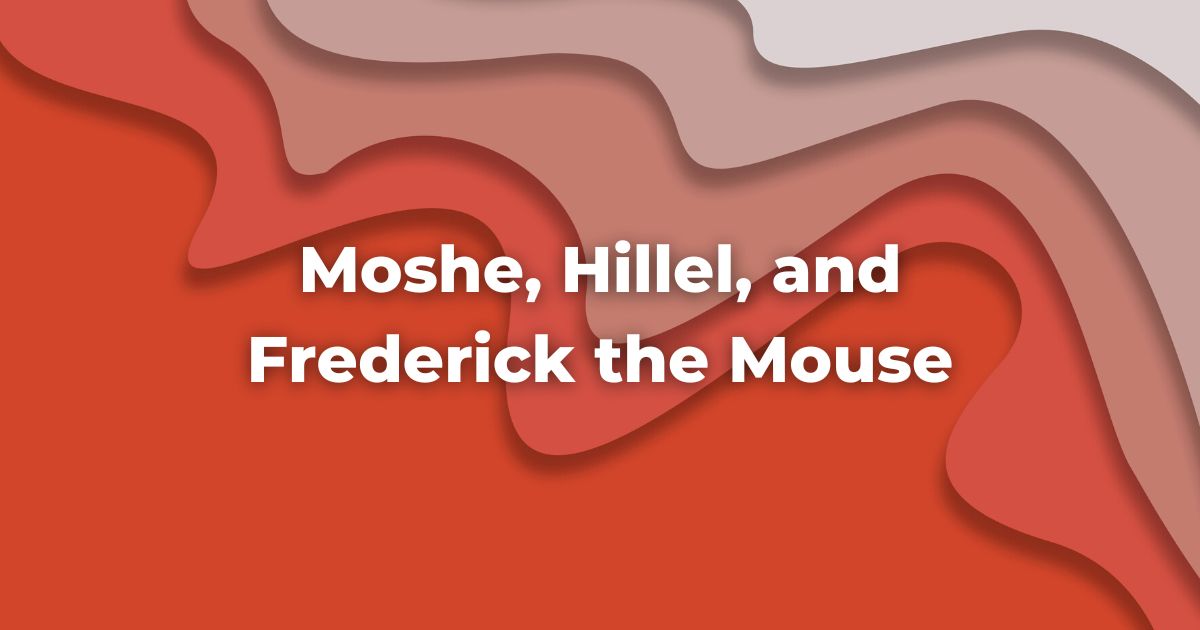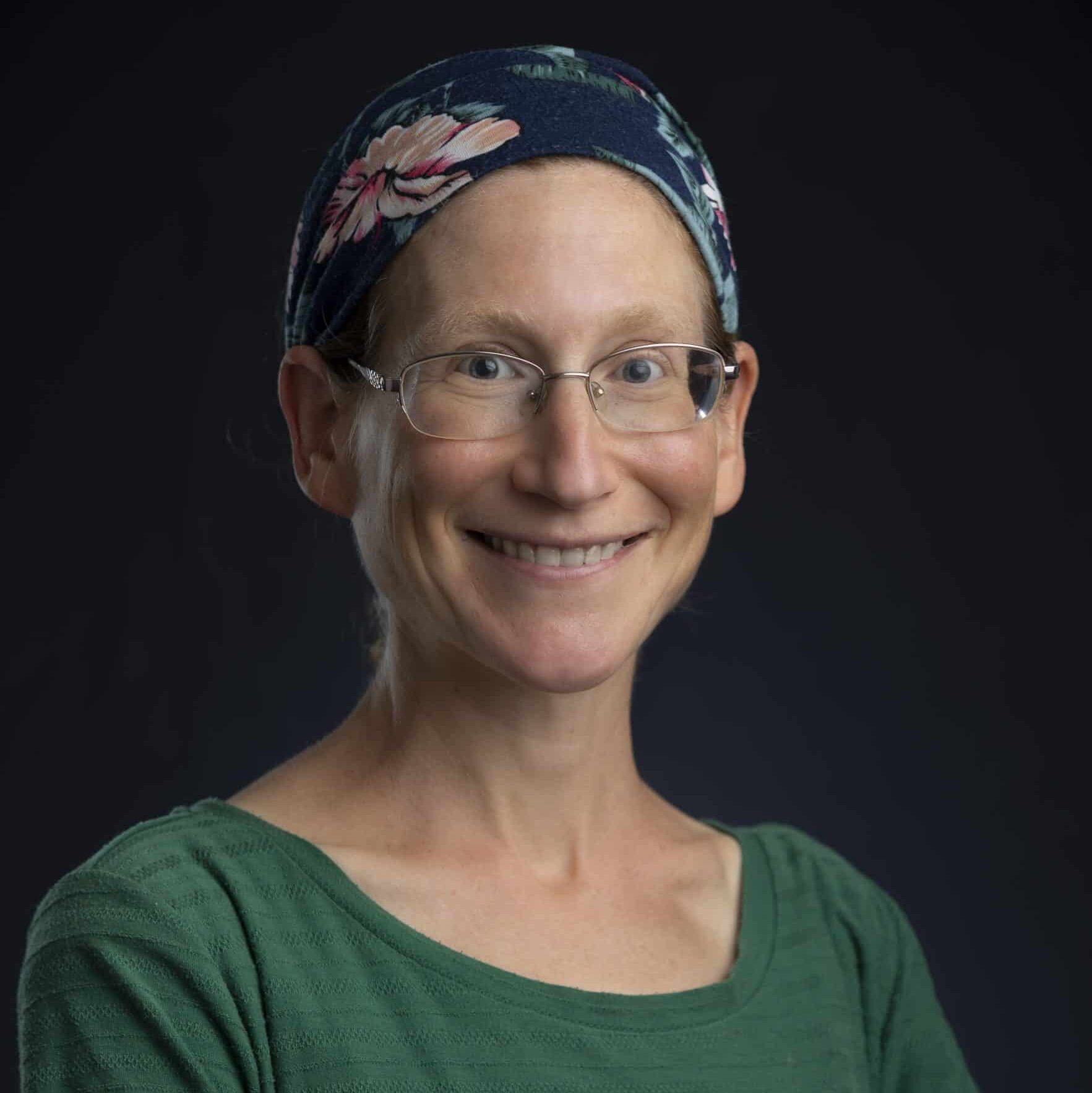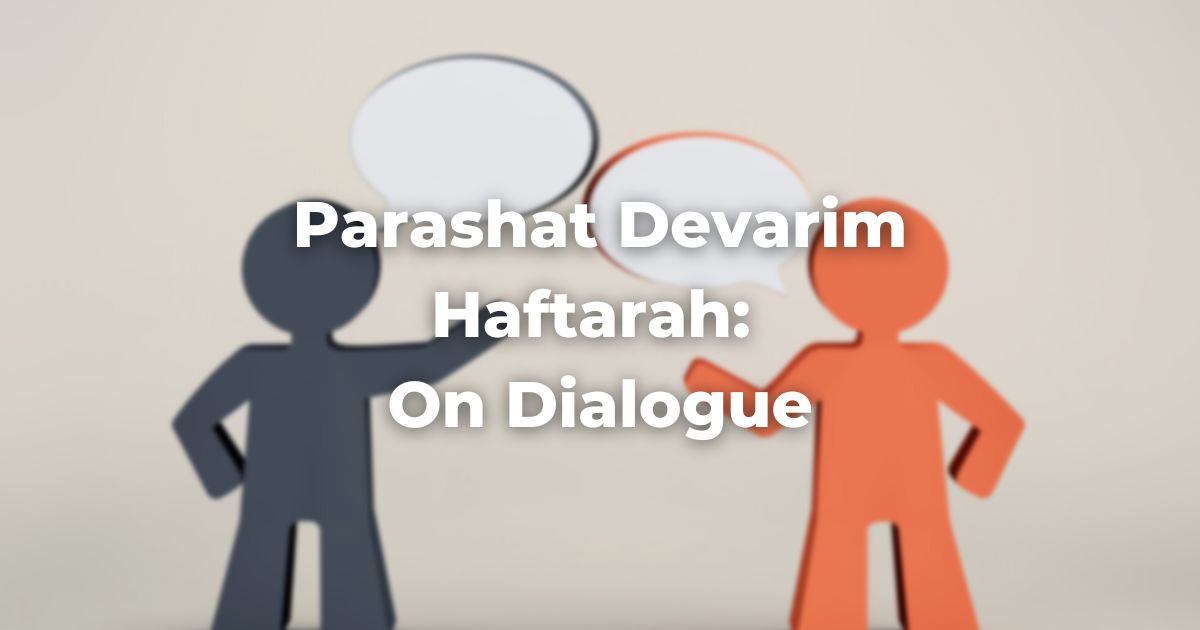In the transition from Exodus to Leviticus, the TorahRefers to the first five books of the Hebrew Bible, the Tanakh, also called the Five Books of Moses, Pentateuch or the Hebrew equivalent, Humash. This is also called the Written Torah. The term may also refer to teachings that expound on Jewish tradition. Read more shifts from describing the construction of the Mishkan to describing its operations.
At the end of the book of Exodus, Moshe was in charge of the Mishkan, transmitting God’s architectural instructions and ensuring that the structure was built “in accordance with all that God commanded Moshe.”
Now, with the start of Leviticus, the Mishkan becomes the domain of Aaron and the priests, who are responsible for the system of sacrificial worship.
No wonder, then, that the rabbis imagine Moshe standing off in the wings at the start of our parashah, unsure of his role and reluctant to resume center stage until summoned by God.
God’s call to Moshe at the start of our parashah is read by the rabbis as a lesson in the value of humility, which is surprisingly more about self-assurance than about self-effacement.
The rabbis (Leviticus Rabbah 1:5) pick up on an apparent redundancy in the opening verse of our parashah: “The Lord called to Moshe and spoke to him from the Tent of Meeting” (Leviticus 1:1).
If the Torah tells us that the Lord “called” to Moshe, why does it also have to state that the Lord “spoke” to him?
Aren’t these verbs essentially synonymous? The midrashThis word is used in two ways, as both a concept and a literature. As a concept, midrash is the expansive interpretation of biblical texts. The term is used to describe the practice of rabbinic interpretation. As a text, it refers to specific collections of interpretations, particularly from the third to ninth centuries in the Land of Israel and Babylonia. Plural: Midrashim
Read more explains that Moshe was standing off to the side and thus God had to first call him over before speaking to him, saying, “For how long will you keep yourself low? The time waits but for you!”
The rabbis contend that this is the same posture Moshe adopted at the burning bush, when he hid his face from God; as per the midrash, it is also the posture he adopted at the Red Sea, when God said, “If you do not split the sea, no one else will,” and then again at Sinai, when God had to call Moshe up the mountain.
The rabbis present Moshe as a model of humility, concluding that one ought to “go two or three seats lower and take your seat. Better that people should say to you: Come up, come up, and not say to you: Go down, go down.” They compare Moshe to Hillel, who was also famous for his self-effacement, arguing that it is better to underestimate oneself than to err on the side of self-aggrandizement.
And yet the midrash suggests that as Moshe stands outside the Mishkan with his head bent and his hands in his proverbial pockets, God has grown somewhat exasperated with him: “For how long will you keep yourself low?”
This does not seem to be the humility that God desires. The rabbis explain that Moshe was reluctant to come forward because he was uncertain as to what he could contribute. He has watched as the Israelites donated gold and precious stones to the Mishkan, and he doubts what he can add. “Everyone has brought their voluntary offerings to the Mishkan, and I have brought nothing” (Leviticus Rabbah 1:6).
God, seeing Moshe’s despondence, said to him, “As you live, your speech is more beloved to me than all.”
Moshe thinks he has nothing to offer, but God assures him that his eloquence is valued most highly. He is like the mouse named Frederick in Leo Leonni’s eponymous picture book, whose gift is not the corn and nuts and wheat and straw that all the other mice gather for the winter, but the beautiful poem about blue periwinkles and red poppies which he composes to sing to the other field mice once the days have grown gray and dark.
Moshe, who has always doubted his powers of speech, is perhaps being once again reminded that his gifts are not just a reflection of his own innate talents, but of what God has instilled in him: “Who gives man speech? Who makes him dumb or deaf, seeing or blind? Is it not I, the Lord?” (Exodus 4:11).
If Moshe denigrates himself too much, he risks denying and depriving the others of his God-given gifts. After all, it is the very same Hillel—famous for his humility—who would arrive at the festival of the water-drawing on Sukkot and say, “If I’m here, everyone is here” (Sukkah 53a). Hillel realized that if he, in spite of his humility, could share his gifts with the world, then surely everyone else could as well.
We are not meant to lay low and downplay our talents, but to use them to enrich those around us – like Frederick, who responds to the other mice’s plaudits—“Frederick, you are a poet!”—by blushing, taking a bow, and saying shyly, “I know it.”
The construction of the Mishkan is frequently analogized to the creation of the world, with the Mishkan imagined as a Garden of Eden (see, for instance, Tanchuma Pekudei 2).
If so, then we might read God’s first call to Moshe in our parashah as analogous to God’s first call to Adam in the garden: “Where are you?”
An omniscient God has no need to ask Adam about his whereabouts; rather, God is asking Adam to take responsibility for his actions. God does not want Adam to hide away shamefully, just as God does not want Moshe to stand off to the side with lowered head.
Adam, instilled with the knowledge of good and evil, is being called to repent for his wrongdoing. And Moshe, instilled with divine powers of speech, is being called to continue to be a conduit for God’s word. Both must come forth and own up to what is expected of them.
Like Adam, every human being is created in God’s image and furnished with God-given gifts.
If we can learn neither to flaunt nor to suppress those gifts, we will internalize the message of the book of Leviticus, namely that sacrificial worship—like all religious worship—is about giving the best of ourselves and, in doing so, drawing closer to God.
See more: Parashat Vayikra
Originally posted as part of the Conservative Yeshiva at the Fuchsberg Jerusalem Center’s Torah Sparks. Support Torah learning from the Fuchsberg Jerusalem Center/Conservative Yeshiva for leaders and seekers around the world here.
Authors
-

Ilana Kurshan teaches TalmudReferring to one of two collections, the Jerusalem and Babylonian Talmuds, edited in the 6th century, that contains hundreds of years of commentary, discussion, and exploration of the ideas in the Mishnah. One could describe it as Mishnah + Gemara = Talmud Read more at the CY. She is the author of If All the Seas Were Ink (St. Martin’s Press, 2017) and Why is This Night Different From All Other Nights (Schocken, 2005). She has a degree in History of Science from Harvard and in English literature from Cambridge, and has worked in literary publishing both in New York and in Jerusalem – as a translator, a foreign rights agent, and as the Books Editor of Lilith Magazine. Since October 2020, Ilana has been a regular contributor to Torah Sparks, FJC’s weekly parashat hashavuah blog.
View all posts -



The Fuchsberg Jerusalem Center (FJC) is a home in the heart of Jerusalem where leaders and seekers can find an authentic place in Jewish tradition to call their own. FJC offers opportunities to study, pray and explore within an egalitarian and inclusive setting, creating multiple pathways for finding personal and communal meaning.
View all posts






